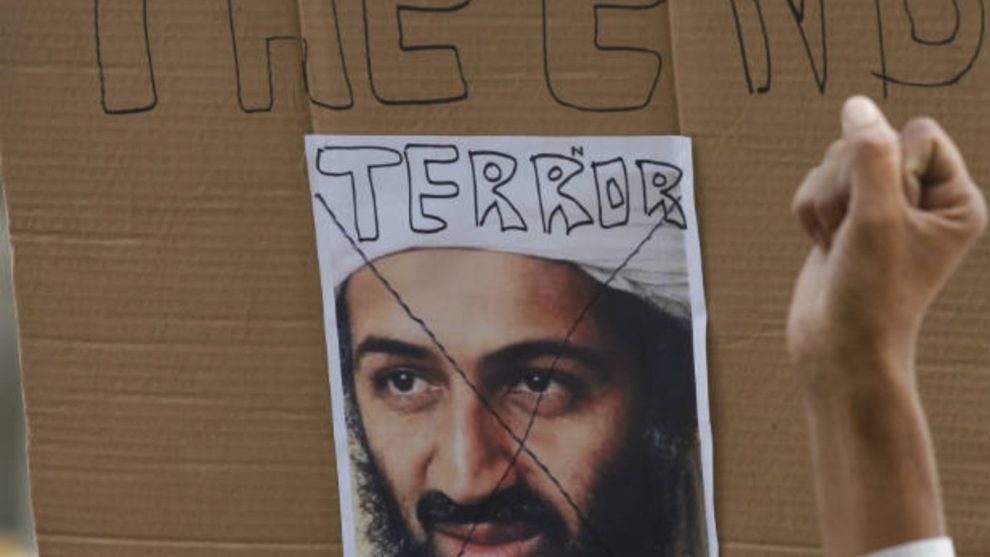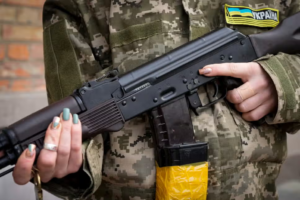The British government backed trying to kill Osama bin Laden with a US airstrike nine months before the terrorist attacks of 9/11 that killed nearly 3,000 people, newly released confidential documents have revealed.
A senior Downing Street official told Tony Blair in December 2000: “We’re all in favour of whacking UBL [Usama bin Laden, as he is referred to in the papers].” British approval in principle of the killing of the al-Qaeda leader is in a briefing document given to Blair before a dinner with President Clinton, who was about to hand over the presidency of the US to George W Bush.
Although bin Laden had not achieved the notoriety he was to gain after the September 2001 attack on the twin towers of the World Trade Center in New York and the Pentagon, he was already on the FBI’s list of the ten most wanted terrorists. He was thought to have been behind co-ordinated attacks on US embassies in east Africa in 1998 and a suicide bomb attack on the USS Cole, a guided-missile destroyer, in Aden in October 2000.
The British policy is revealed in papers released by the National Archives in Kew. John Sawers, Blair’s foreign affairs adviser, later the head of MI6, wrote: “The Americans don’t yet have proof that UBL was responsible for the attack on the USS Cole. They won’t launch airstrikes until they have a smoking gun, and that may not be until after 20 January [when Bush would become president].”
Sawers says that Britain would not want airstrikes while Blair was visiting the Gulf in early January. He adds that British personnel in Pakistan could be vulnerable to reprisals. “We’re all in favour of whacking UBL but we need a bit of notice and a chance to influence the timing.” The US had been pursuing bin Laden since the embassy attacks, its efforts including a cruise missile attack on his training camps in Afghanistan, where the Taliban regime was harbouring al-Qaeda.
In 2014 a tape recording emerged of Clinton talking the day before the 9/11 attacks about declining to pursue one opportunity to kill bin Laden in Afghanistan because it would have risked killing hundreds of civilians. “I nearly got him,” he said, but the risk was too great. “So I didn’t do it.”
After the 9/11 attacks the US offered a $25 million reward for information leading to bin Laden’s capture or death and led a coalition of international forces to overthrow the Taliban regime in Afghanistan. Bin Laden survived, however, until 2011 when, under President Obama, US navy Seals mounted a CIA-led raid on his hideaway in Abbottabad, Pakistan.
A memo from October 2001, just before the US-led invasion of Afghanistan, reveals the efforts that Britain made to keep the US happy. A Foreign Office memo about Blair’s draft message to the Afghan people, in which he spoke about the invasion being about justice and security, not revenge, said that a passage about the “evidence” of al-Qaeda’s responsibility for 9/11 should be changed to “information”. Patrick Davies, private secretary to the foreign secretary, wrote that the US “are avoiding use of the word ‘evidence’, since they are treating any response as a matter of self-defence and do not consider that they should be expected to produce evidence which would stand up in a court of law to justify their actions”.
The archives also reveal some of the sensitivities involved in coping with the handover of the presidency from Clinton to Bush. Bob Zoellick, who was about to become the US trade representative, had dinner with Christopher Meyer, the British ambassador in Washington, in January 2001. The ambassador said that Zoellick had spent most of the dinner giving advice on how to handle Bush and recounting a gaffe made by Lord Robertson of Port Ellen, the former Labour defence secretary who was Nato secretary-general.
Meyer said in a memo that Zoellick had referred to Robertson’s “joking remarks in Washington about his CND past and demonstrating against US nuclear submarine bases in Scotland”. Meyer said: “This had not gone down well.”
Source : The Sunday Times




































